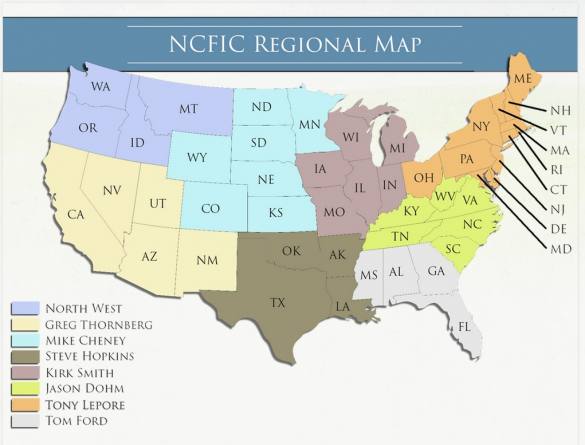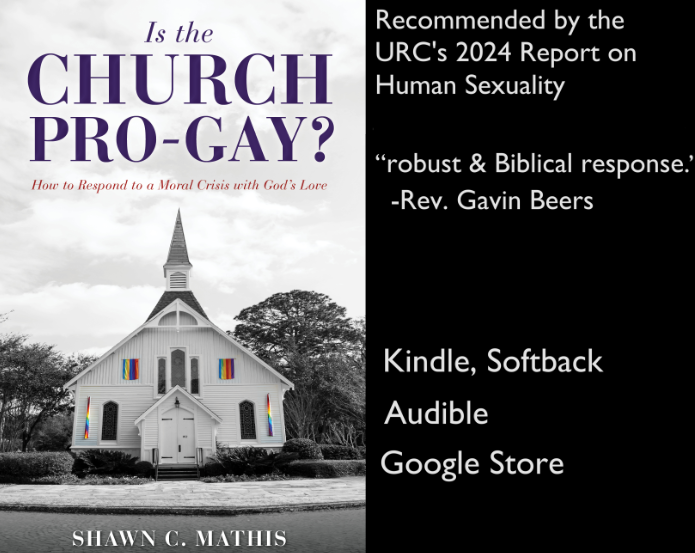
Is the National Center for Family Integrated Churches (NCFIC) morphing into a quasi-denomination? Maybe something akin to a Presbyterian way of running things? As a group they unite together over children in worship (that is good) but denounce children in Sunday school (that’s bad).
Late last year, Scott Brown announced the formation of “regional facilitators.” These men coordinate area-wide events and leadership meetings to better cement inter-church relationships.
But Scott hastily assures his readers that this is not the formation of a denomination but an “organic way that brothers and sisters in churches are designed to love one another.”
Since when does an organic way have such a regional structure with regional leaders? Or when does an organic way include a publicly signed confession? Or when does an organic way involve a national church roll–all of which is coordinated by a central organization with one small board and one main leader?
This organic way seems a little more structured than many will admit.
But someone will quickly point out that Scott is not disciplining the churches like a bishop. Yes and no.
Consider the simple fact of signing the NCFIC declaration: to whom is the promise given that the church signing it agrees with the Nicene Creed and is in “substantial” agreement with the document itself? To the NCFIC. Or rather, to the board, I think (the details of the NCFIC are not clear). Thus there is an implicit moral (and now structural) authority to accept or reject the church’s signing. They hold the keys to membership.
It is true that the NCFIC has a stated hands-off policy toward member churches. But churches have been removed from the list.
Consider further, that a church can list any exceptions it has with the NFIC declaration. But who decides what exceptions are allowable? The NCFIC. They hold the keys to membership and to doctrinal purity.
But there is more. The goals of the NCFIC are eerily denomination-like:
- To facilitate the creation of new churches: “Facilitate church planting…Wherefore [the undersigned NCFIC churches and individuals], in Light of This Our Faith, We Do Hereby Resolve to…Consult with biblically sound churches that will likewise plant [FIC] churches, which perpetuate faithfulness to the Word of God in matters of church and family life.” (Welcome Pastors, NCFIC declaration)
- To maintain structural cohesion of said churches: “How important is the establishment of biblically-ordered local churches? It is very important, since the church is ‘the body of Christ,’ (Eph. 1:22-23) and ‘the pillar and ground of the truth,’ (1 Tim. 3:15). This is why the NCFIC maintains an online church network called the, ‘FIC Network.’ (Scott Brown, posting)
- To preserve and spread the Gospel: “We have seven objectives at the NCFIC. The first and foremost is to preserve the spread of the true Gospel from one generation to the next, through biblically-ordered, Gospel-preaching, Christ-exalting churches and families” (Scott Brown, posting)
I rejoice that Scott Brown is moving toward something beyond Independency. It seems the NCFIC is becoming something akin to the Southern Baptist Convention (SBC) with some regionalism of the Communion of Reformed Evangelical Churches (CREC) thrown in for good measure.
Both groups affirm the autonomy of the local body, while the CREC has regional presbyteries. And the CREC is a collection of Baptists and Presbyterians.
But there is more: “it seems to me that God would have many of these [FIC] churches be connected with one another for mutual help.” What does that help look like? Scott believes this help is found in the “pattern of the churches in the New Testament” and approvingly quotes the following:
“They shared love and greetings; They shared preachers and missionaries; They supported one another financially with joy and thanksgiving; They imitated one another in how to live the Christian life…They were cautioned about whom to receive as teachers; They were exhorted to pray for other churches and Christians.”
If these become implemented, there will be no doubt that the NCFIC has become a denomination. Part of this list is already being implemented:
“Kevin Swanson and I are going to be hosting a church leader’s luncheon for the church leaders in Englewood, CO…We greatly desire to see like-minded pastors and congregations within a small geographical area begin to (1) know each other, (2) actively encourage each other, and (3) join together in Great Commission labors.”
Functionally, the NCFIC is in a unique position to be a denomination-that-is-not-a-denomination, working across existing denominational boundaries. Will regional Presbyteries have to contend with a presbytery-within-a-presbytery if some of their churches join the NCFIC?
The question remains: is the National Center for Family Integrated Churches morphing into a quasi-denomination? Only time will tell.






Great news-note Shawn. Had not heard of this.
Alá Psalm 2:3, and its observation re man’s aversion to controlling gospel restraints, so many evangelicals fear denominational ties. Partly enlightened, because of man’s pharisaical tendencies to coerce each other with man-made laws, this modern bent leaves man just as vulnerable to the cancer of social independency, chaos and meaninglessness. Men are so optimistic regarding their own efforts, and so suspicious of others. What happened to our faith in God’s Providence — ecclesiastically???
I often complain about the pharisaical tendencies (wherever I am), but long ago surrendered to denominationalism (PCA, OPC, and now RPCNA). I have found it good for my soul, working understanding, learning and much patience! I learned a lot from OPC guys with whom I disagreed the most. Not the least of that was the love of the brethren (& God, I Cor 13!).
These new groups should have joined “me,” years ago. They are part of the modern malaise. I rejoice for every good sentiment (like this new movement) I see in them; but TIME IS WASTING, and all the redundant labor that goes into such movements belies the simple biblical concept that we SINNERS are problematic to the core! For economies’ sake alone, we ought to labor harder to labor together!
Agreed brother. And we covet your prayers because some think that somehow offering NCFIC to us is the way to “labor together” when we already have confessional tools and covenant relationships to work with (if we would but use it).
Hi Shawn,
Are you in Kevin’s presbytery? I heard some time ago that he was called on his affiliation with NCFIC and he was in some ways asked to choose, be part of the NCFIC or the OPC. Is any of that true? I am in the PCA, so I understand the courts of the church and the accountability that they provide for pastors and since Kevin is a member of the presbytery, how does this affiliation come into play with his role as an OPC minister? Is this considered the same as being in a denomination like the OPC/PCA and also being a part of a network, like Acts 29?
Thanks
Greetings, You ask some good questions. Rev. Swanson’s church took their name of the NCFIC confession and list. The Presbytery did not rule on the matter from a perspective of the NCFIC as a quasi-denomination. The ruling was simply based on the content of the confession.
Unfortunately, there is still a movement to get Reformed churches to sign this new declaration–a declaration being re-worded to avoid the offensive content of the previous confession. But the new wording is designed to avoid offense even as the content of the previous confession is not denied but subsumed under different language (for instance, the previous confession declared age-segregation as rooted in evolution and secular thought. the new declaration deleted that language (without recanted it) but still kept the same idea in more vague language (that the church should fight Darwinism and Humanism influence in methods as well [age segregation or age-integration are considered “methods”]). Hope that helps.
Pastor Mathis,
Forgive my being slow on the uptake, but what happened since Swanson had removed ROPC from NCIFIC?
http://theaquilareport.com/presbytery-of-the-dakotas-rules-kevin-swansons-church-must-remove-name-from-ncfic-confession/
Thanks.
Greetings, Please see my response to Paul.
Thank you. Sorry to have missed that.
It seems Mr Swanson has stayed within the letter of the law, but not its spirit?
Presbytery hacked at a branch, not the root.
Has anyone read John Taylor Gatto and are willing to offer an opinion about his conclusions?
I have read parts of it online and skimmed the rest. The first thing that strikes me is the decided lack of references. You can do a google search and find mixed reviews on his work. From what I can tell he has a strong libertarian streak in his view of education.